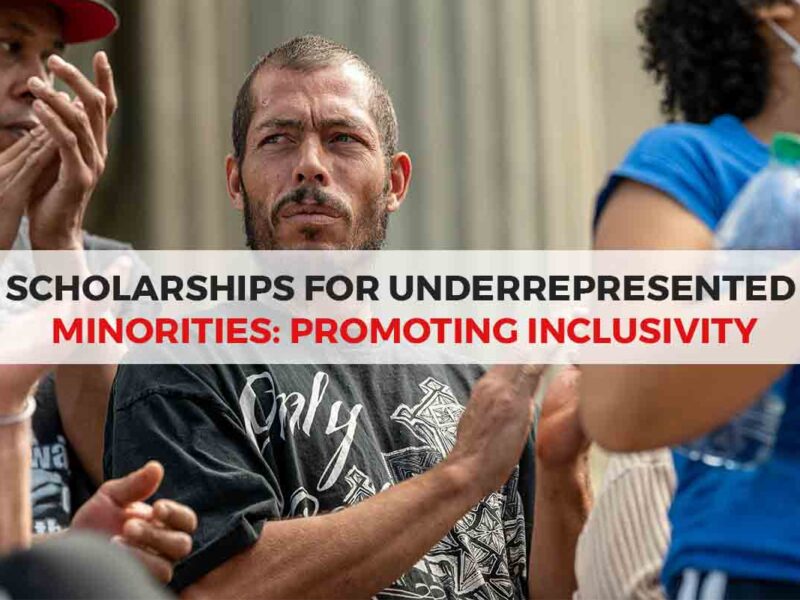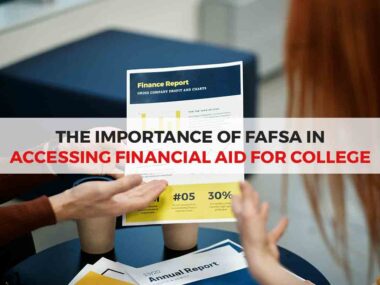Introduction:
In the present quickly developing world, training remains as the foundation of progress and strengthening. Be that as it may, admittance to quality schooling has not forever been impartial, with specific gatherings confronting authentic impediments. One urgent step towards amending this lopsidedness is the arrangement of grants for underrepresented minorities. These grants offer monetary help as well as act as an amazing asset for advancing inclusivity in instructive foundations.
The Scene of Instructive Incongruities:
By and large, underrepresented minorities, including yet not restricted to African Americans, Hispanic Americans, Local Americans, and other underestimated gatherings, have confronted foundational boundaries in getting to advanced education. These hindrances range from monetary requirements to an absence of portrayal in scholastic spaces, adding to a critical hole in instructive fulfillment. Grants custom fitted for underrepresented minorities expect to overcome this issue, perceiving the requirement for different voices and points of view in the scholastic domain.
Monetary Obstructions:
One of the essential difficulties looked by underrepresented minorities is monetary requirements. The expense of educational cost, course books, and other instructive costs can be a critical hindrance for the overwhelming majority gifted people from seeking after advanced education. Grants explicitly intended for underrepresented minorities lighten this weight, opening entryways for understudies who could somehow or another find their yearnings restricted by financial conditions.
Portrayal Matters:
Notwithstanding monetary obstructions, the absence of portrayal in scholastic spaces can make a feeling of disconnection for underrepresented minorities. Grants offer monetary help as well as add to a more comprehensive climate by expanding the presence of different voices in instructive foundations. At the point when understudies from underrepresented foundations see people who share their encounters and social foundations succeeding in scholarly world, it moves certainty and a feeling of having a place.
Advancing Variety in Schooling:
Variety in instructive settings enhances the growth opportunity for all understudies. Openness to various points of view encourages decisive reasoning, imagination, and a more profound comprehension of various societies. Grants for underrepresented minorities add to this variety by guaranteeing that a wide range of voices is addressed in homerooms, auditoriums, and research labs. This variety isn’t only advantageous for the people who get grants yet upgrades the general scholarly experience for everybody.
Building an Extension to Progress:
Grants custom-made for underrepresented minorities act as a pivotal extension to progress. They give open doors to skilled people who could somehow be disregarded because of cultural and financial variations. By putting resources into the schooling of underrepresented minorities, these grants engage people to seek after their scholar and expert goals, breaking the pattern of generational hindrances and making a more level battleground.
The Effect on Networks:
The advantages of grants for underrepresented minorities reach out past individual beneficiaries. As these understudies graduate and enter their individual fields, they become impetuses for positive change inside their networks. Training has the ability to elevate whole networks, and by supporting underrepresented people in their quest for information, grants become instruments of cultural change.
Past the Homeroom: Engaging Prospects:
Grants for underrepresented minorities are not only a method for getting a degree; they are pathways to strengthening and initiative. Numerous beneficiaries of these grants proceed to become persuasive figures in their particular fields, separating hindrances and filling in as guides of motivation for people in the future. These people become advocates for change, utilizing their schooling to resolve foundational issues and add to the more extensive social and financial advancement of their networks.
Besides, the effect of grants reaches out into proficient organizations, making a gradually expanding influence of inclusivity. As underrepresented minorities enter different ventures, they carry with them interesting points of view that rock the boat and cultivate advancement. By developing a different labor force, grants become impetuses for making more unique, versatile, and socially mindful social orders.
Tending to Fundamental Imbalances:
While grants for underrepresented minorities are a positive development, it is significant to perceive that they alone can’t destroy profoundly instilled foundational disparities. To accomplish enduring change, a multi-layered approach is fundamental, including strategy changes, comprehensive educational program improvement, and continuous endeavors to cultivate a culture of inclusivity. Grants are nevertheless one piece of the riddle, working couple with more extensive drives pointed toward making an all the more and fair school system.
Also, coordinated effort between instructive establishments, administrative bodies, and confidential areas is fundamental to enhance the effect of these grants. By uniting, partners can foster extensive methodologies that address monetary hindrances as well as the underlying drivers of underrepresentation. This cooperative methodology guarantees a supported obligation to inclusivity, establishing the groundwork for a more evenhanded instructive scene.
Estimating Accomplishment Past Graduation Rates:
The outcome of grants for underrepresented minorities reaches out past graduation rates. While expanded enlistment and consummation rates are fundamental measurements, the genuine effect is reflected in the achievements and commitments of grant beneficiaries post-graduation. Following the profession directions of these people gives significant bits of knowledge into the adequacy of these drives.
By estimating outcome with regards to proficient accomplishments, local area commitment, and influential positions, we gain a more nuanced comprehension of the groundbreaking force of grants. Examples of overcoming adversity of grant beneficiaries breaking biased based impediments, leading local area projects, and pushing for change act as strong tributes to the significance of putting resources into underrepresented ability.
Difficulties and Future Contemplations:
Regardless of the steps made in advancing grants for underrepresented minorities, challenges persevere. The interest for such grants frequently surpasses the accessible assets, featuring the requirement for proceeded with speculation and extension of these drives. Furthermore, establishing a genuinely comprehensive instructive climate requires progressing endeavors to address verifiable predispositions, perceived hostilities, and different types of segregation that underrepresented minorities might look inside scholarly organizations.
Looking forward, the fate of grants for underrepresented minorities lies in flexibility and development. As cultural elements advance, grant programs should stay receptive to arising difficulties and open doors. This incorporates thinking about the interconnection of personalities, recognizing the assorted requirements inside underrepresented gatherings, and refining systems to guarantee inclusivity at each degree of schooling.
Conclusion: A Source of inspiration:
In the excursion toward a more comprehensive instructive scene, grants for underrepresented minorities stand as an encouraging sign and progress. They address an aggregate obligation to destroying obstructions, encouraging variety, and enabling people to arrive at their maximum capacity. Be that as it may, the work is nowhere near total.
As we praise the effect of grants, let it be a source of inspiration for people, organizations, and policymakers the same. Allow us to advocate for expanded financing, assess and refine existing projects, and work cooperatively to establish an instructive climate that really mirrors the wealth of human variety. In doing as such, we honor the goals of underrepresented minorities as well as add to the formation of an all the more, fair, and edified society.



